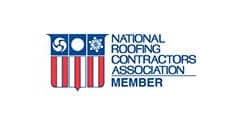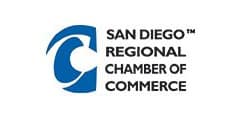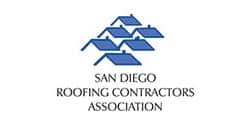Whatever your roofing needs, large or small, you need a professional roofing contractor you can trust. It’s important to find a contractor who will provide you with sound advice on products, reasonable explanations of procedures, and, most important-solid results.
It’s difficult to determine the capabilities and reliability of a roofing contractor at first glance. That’s why this article was created. It’s a simple, step-by-step guide designed to help you find the contractor who’s right for you.
STEP 1: Where to Begin
A roofing system is a complex combination of elements, the success of which depends on the quality of shingles, installation and overall construction. There are many ways to start your search for the roofing contractor who meets your individual needs. Referrals are obviously the best source for names of credible companies. Ask friends and family members who they have used in the past. Contact your local Chamber of Commerce about roofing contractors who are active in the community. The Better Business Bureau, state and local licensing authorities, local trade associations and your local yellow page directory are also excellent sources of information.
STEP 2: Meeting and Evaluating Potential Roofing Contractors
After you have compiled a list of possible roofing contractors, take time to evaluate each one carefully. A professional contractor will be happy to provide any information you may require.
Many homeowners have been mystified by the seeming lack of interest and response from contractors they call. To get a roofer to respond your call, tell him you are shopping around, but are only interviewing three contractors, not ten.
A contractor is looking for good jobs that will make a fair profit and bring future referrals. Many contractors have had experiences with unreasonable or dishonest homeowners. Therefore, they look for warning signs of customer problems during the initial interview. To have a good fit, both contractor and homeowner need to have open conversations and make sure that ease of communication is present initially. Being able to feel comfortable up front makes communication during the job easier, helping to ensure you get the end result you’re looking for.
Set up a meeting to discuss your needs and their qualifications, and be sure to pay close attention to the attitude of the company representative. Good contractors take pride in their work and are enthusiastic about the possibility of helping you with your roofing problems. If you feel confident that the contractor is truly interested in your project, ask for the company’s vital statistics-specific business information which will help you make your final decision.
Information you should have:
Business Name and Address-A good professional contractor will provide the company’s permanent business address and telephone number. These are essential when checking on the company’s previous business dealings.
Experience-The training and experience of a contractor, as well as the age of his or her company, will help you determine their ability to successfully complete your roofing project.
Licensing/Bonding-Some states require special licensing for roofing contractors. Ask for business license numbers and information on the company which bonds the contractor. Then check with local authorities to see that the company compiles with regulations.
Insurance Coverage-A contractor should carry worker’s compensation and general liability insurance. Request the name and address of the insurance carrier, along with a copy of the company’s insurance certificate. Beware of low bids which are a result of incomplete insurance coverage and worker’s compensation.
Professional References-Your contractor’s past can help you determine your future. Ask for credit references, banking information and a list of completed projects including the names and list of completed projects including the names and telephone numbers of previous clients.
Company Philosophy-Discuss application techniques and workmanship guarantees. Does the contractor stand behind his work?
STEP 3: Utilizing the Roofing Contractor’s Product Knowledge
Your contractor should have up-to-date knowledge on quality products for your project. He or she is the best source information, but you play an active role in the product selection process. Ask questions about different shingles such as brand names, life span, thickness, design, available colors and warranties. Selecting the best products is as important to your job as selecting the right contractor.
STEP 4: Consider Enhancements
Whether you’re repairing a portion of your or replacing it entirely, now is the time to consider related projects. Perhaps you need new roof vents, or gutters and down spouts. Evan more aesthetic additions, such as enhanced high profile hip and ridge shingles, or skylights, should be reviewed. When done in conjunction with a roofing project, all of these enhancements are more convenient and less expensive.
STEP 5: Understanding and Negotiating the Roofing Contract
Prior to drafting a contract, most roofing contractors will provide you with either an estimate or a proposal. An estimate typically provides a single price, a generically described product, a color and no options. A proposal offers more detail with a choice of products by brand name, prices, services and designs. A proposal will normally offer three options-good, better and best-and include product samples and literature. A contractor who takes time to prepare a good proposal will most likely do a more through roofing job. All items to be accomplished should be written as a part of your contract. Get in writing …beware of verbal promises.
When a contract is presented, it should spell out the proposed work, prices and completion date. Read the contract carefully. Misunderstandings are the most common cause of contact disputes. Pay special attention to be certain the following points are covered in the contract.
Building Permits-What’s necessary? Consider local ordinances, cost, posting requirements.
Start and Completion Dates-including plan of action in case of weather delays.
Products/Materials-What will be used, brands, colors, etc.
Project Inspections-number of inspections, completion timetable.
Site Procedures-work hours, clean-up procedures on the roof and around your home, safety precautions etc.
Warranties-including both workmanship and product.
Terms-detailed as method of payment to include a lien waiver upon final payment.
Liens-You should be aware that under the law of most states, a contractor who does work on your home, or a supplier of materials for such work, has a right to place a lien on your property. Make sure all essential elements of your agreement are written down and understood by both parties. Also, require the contractor to inform you of who supplier will be along with any subcontractors which will be used on the job. Either pay them yourself or require that you have a receipt showing they have been paid before paying your contractor.
Right-to-Rescind-providing the right to cancel the contract without penalty within a set period of time (usually three days).
STEP 6: Sit Back and Relax
A little well-planned researched up front will undoubtedly save you a lot of time and trouble later on. Once you feel confident that you have the best contractor, the best products, the best value-simply relax and let your contractor do his job. Do, however, monitor the progress of your project to be certain your contractor lives up to his superior reputation.
Hopefully, the information will simplify the task of choosing a professional roofing contractor.








